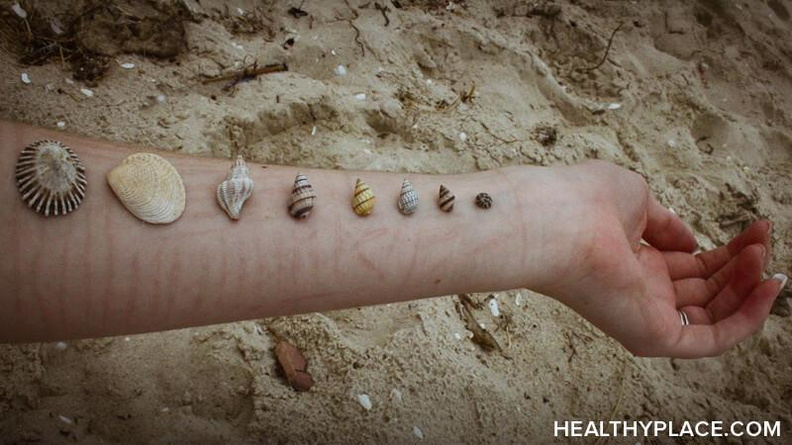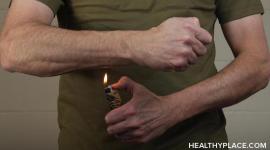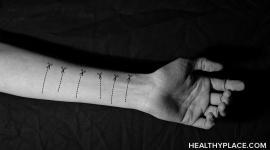Self-Injury Information, Resources & Support

Detailed information about Self-Injury (Self-Harm, Self-Abuse, Self-Mutilation) including why people self-injure, warning signs of self-harm, treatment for self-injury and information for parents.
Welcome to the Self-Injury Center Homepage
Self-injury (SI) is known by many names, including self-harm, self-mutilation, and self-abuse. There are so many misconceptions about self-injury. Among them, people who self-injure are really trying to commit suicide. In reality, self-injury is the act of physically hurting yourself on purpose without the intent of committing suicide. It is a method of coping during an emotionally difficult time that helps some people temporarily feel better because they have a way to physically express and release the tension and the pain they hold inside. Research also shows that chemical changes in the bodies of people who self-harm make them feel happier and more relaxed.
Self-Harm, Self Injury Table of Contents
- General Information About Self-Injury
- Self-Injury Help for Family and Friends
- Self-Injury Comorbidities
- Self-Injury and Depression
- Self-Injury Conference Transcripts
General Information About Self-Injury
- What is Self-Injury, Self-Harm, Self-Abuse
- Warning Signs of Self-Harm
- Why People Self-Harm
- How Do You Tell Someone You Self-Injure?
- Psychological and Medical Treatment of Self-Injury
- Self-help for Self-Injury
- Self-injurious Behavior, Self-injury Treatment
- Self-injury Not Limited to Teens
- Videos on Self Injury
Self-Injury Help for Family and Friends
- What Can Parents and Teenagers Do About Self-injury?
- How to Help the Person Who Self-Injures: For Family Members and Significant Others
- In-depth Information on Suicide and How to Support a Suicidal Person
- Books for People with Self-Injury Problems, Friends and Family
Self Injury Comorbidities
- Self Injury Within Other Mental Health Conditions
- Self-Injury and Associated Mental Health Conditions
- Suicidal Self-Injurious Behavior in People With BPD
- Cutting Behavior, Suicidality Relation to Childhood Trauma
- Depression: Suicide and Self Injury
- Depression is Common in People Who Self-Injure: Therapist's Comments
- Self Mutilation: Self-Injurers Often Suffered Sexual or Emotional Abuse
Self-Injury and Depression
- The Relationship Between Self-Injury and Depression
- Introduction to Self-Mutilation
- Study of Patients Who Exhibited Cutting Behavior and Suicidality
- Depression: Suicide and Self Injury
- Who self-injures? Psychological Characteristics Common in Self-Injurers
- Depression is Common in People Who Self-Injure: Therapist's Comments
- Cutting: Self Mutilating to Release Emotional Stress
Self-Injury Conference Transcripts
- Getting Help for Self-Harm, Guest: Dr. Sharon Farber
- Recovering From Self-Injury, Guest: Emily J
- Self Injury Experience, Guest: Janay
- Treating Self-Injury, Guest: Michelle Seliner
- What It Takes For You To Stop Self-Injuring and DBT For Treating Self-Injury, Guest: Sarah Reynolds, Ph.D.
- What You Can Do to Stop Self Injury, Guest: Dr. Wendy Lader
APA Reference
Staff, H.
(2013, December 4). Self-Injury Information, Resources & Support, HealthyPlace. Retrieved
on 2025, December 31 from https://www.healthyplace.com/abuse/self-injury/self-injury-homepage



